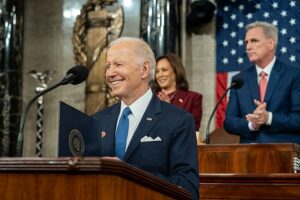Democracies are in decline, and our educational institutions are to blame


The rise of right-wing populism has sparked the demise of democracies across the globe. Whilst this may be true, frankly, our outdated, 20th-century educational institutions are to blame. Myopic attitudes, voter ignorance, and self-enlightened interests are creating narrow margins, which has had a significant impact on democratic elections globally. Education reform is needed now more than ever to salvage democracy.
Understanding the history of schools will soon allow us to understand that educational institutions are products of logical necessity. In that, these institutions for years now have taught, what we as societies, have perceived to be a logical necessity in the pursuit of inquiry to better equip our children for the real world. This is not wrong; there is a reason why math, science, and languages are core subjects taught at most schools around the world. But, in the same way generations and societies progress, so should our educational institutions. In this information age, we should recognize that progressive politics is needed just as much as mathematical and scientific innovation was back when these institutions were created.
The rise of the technology sector has propagated a number of unwanted sentiments. Social media has been credited on its ability to enhance outreach. However, given the accelerating rate at which fake news and radical ideology is spreading online, social media outreach could be alarming should it continue to harbour myopic attitudes and attract to ill-informed voters. In turn, educational institutions should be leveraging the rise of technology to counteract the plague of fake news and radical ideology that is greatly influencing unenlightened voters.
Let’s look at some statistics
When Britain made the decision to self-destruct as a result of the most shocking contemporary political referendum, it lent itself to extensive debate for a number of reasons. First, Brexit won with only 51% of votes with a 72.2% voter turnout. That is without the 26,033 rejected ballots. Second, voters were greatly misinformed by the ‘Leave’ campaign as they pledged 350 million pounds a week in EU membership to be redirected towards funding the N.H.S., when really this was not the case. It would be ignorant to not acknowledge the implications of misleading campaigns on public opinion. For a second, let’s consider the possibility that the remaining 27.8% of eligible voters, had they voted, could have changed the outcome of this referendum given the 3.8% margin. And what if, the 26,033 rejected ballots were actually accounted for?
Whilst the 2016 American election is up for its own debate, there are still some valuable lessons to be learned from this election. Business Insider reported only 139 million Americans voted in the most recent presidential election, accounting for only 58.1% of the voting-eligible population. Granted, the decision to not exercise one’s political right is subjective and comprised of a variety of factors; one can’t help but wonder what these elections could have looked like with a 100% voter turnout.
Education Reform is the answer.
Larry M. Bartels sheds light on how the average voter lacks the ability to connect economic inequality to public policy. This is limiting their ability to understand how supporting certain policy changes could impact their own economic and political burdens. When we combine this notion with the understanding of how myopic attitudes are creating a series of unprecedented events, we’ll soon come to understand that the future of younger generations is in grave danger should these kinds of attitudes continue to drive the outcome of democratic elections. The reality is, as a society, we have become reactive. We are reacting to undesired economic and political stress further fuelling the state of chaos when really we need to learn how to be preventative and proactive.
Let’s look at Brexit again. The hard facts about a post-Brexit British economy were calculated by numerous economists prior to the referendum. Many politicians campaigned for the likelihood of a Hard Brexit and even the possibility of a No deal. Given their ability to foreshadow what is very much a British reality; the integration of Economics and Politics at the core within educational institutions could enable the average voter to form equally educated opinions. This is not to imply that voters are uneducated. But rather, at times of political and economic despair, one would hope that they would be able to understand the importance of their voting privileges.
Expecting citizens to exercise their political rights without equipping them with an adequate understanding of what it means to do so, is merely an oxymoronic expectation. To begin addressing this issue, education reform should take a stronger focus on the reconstruction of secondary and tertiary education. International curriculums need to be reassessed and restructured to educate students on the importance of economics and politics in our daily lives. There is hope that this would allow future generations to be geared with the right understanding to make a better judgment than we, as a society have today.
Shivani Somaiya is a Graduate student at New York University’s Graduate School of Arts and Science, working towards achieving her Master of Arts in International Relations and Affairs. In 2018, she graduated with her Bachelor of Arts in International Relations from Royal Holloway, University of London.





